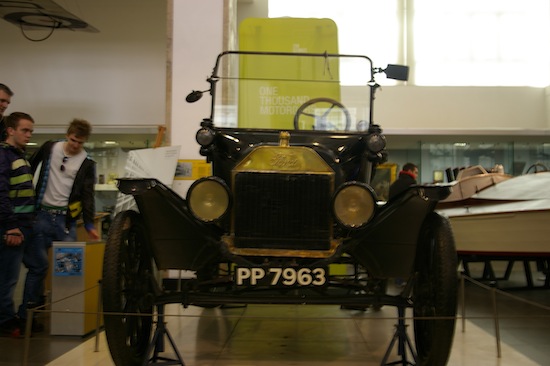This article is more than 1 year old
What is HPC actually good for? Just you wait and see
Technology, if not money, does trickle down to your children
High Performance Computing (HPC) is all terribly exciting. We get announcements about this supercluster or that beating the number of teraflops of that other one (or, more likely these days, petaflops). Or maybe it's data throughput or storage size or even transfer rates.
And, perhaps the most interesting way of thinking about these edge-of-the-technological envelope machines isn't in fact about the strange and exciting problems that they can solve.
It's that they are, in fact, at the edge of the technological envelope and they're exploring the technologies we're all going to have on our desktops in a decades' time. That's the version of trickle-down economics that does actually work of course.
The caricature we're given is if the rich have all the money then it would trickle down to us in some manner. As if the evil plutocrats buying yachts meant that we could all have fulfilling careers as ship's chandlers.
This isn't, in fact, quite what the theory was (which was that the rich do not spend all their incomes, they save some of them and this becomes investment).
Investment is what raises the productivity of the workers and average wages depend upon the average productivity of labour. Thus, if the rich save and invest more then in the next turn around wages rise.
Take or leave that theory as you wish.
However, there is this other trickle-down theory that does really work. It is that most technological advance (most certainly in consumer goods but more widely applicable) is the result of people making insanely expensive (and often insanely stupid) toys for rich people.

The Model-T Ford, the first truly mass-market motor car
We've pointed this out before, but whatever Daimler created as the first car cost a lot more than a horse and was worse than a horse at doing everything.
However, a couple of decades of the application of manufacturing techniques to that basic idea gave us the Model-T, the first truly mass-market motor car.
I've seen this in my own crisscrossing of the computer industry. I once did some marketing for Aglient (the most expensive failed start up at that time until the likes of Pets.com came along to claim records). The very basic idea was sound: graphics really is the thing. So, let's build “superminicomputers” aimed at being a graphics workstation and engineers and scientists will love us.
What killed the business was not realising the speed at which trickle down works. What was stunning graphics performance in a £200,000 workstation then is less than a reasonable gaming PC will provide today.
So it is with much of what we call HPC today. Yes, it is all terribly exciting. The latest machines can do climate models (the Met Office has traditionally been the first adopter of whatever supercomputer technology might be out there for the UK), protein folding (also addressed by using spare processor cycles over the internet), figure out whether Higgs was right at CERN and all sorts of lovely other things.
And yes, those do push at the boundaries of human knowledge in a lovely and wondrous manner (the ongoing shouting matches about climate change might indicate rather further beyond them than many are comfortable with). But that's not, to my mind at least, the most important thing about what's going on in this sector of computing.
It's not what they're researching as they push out that envelope of what it is possible to compute. Rather, it's the techniques they are developing as they do so which will then trickle down to us and our desktops. And that's when things get really exciting. No, not because we can then all play a game based on protein folding techniques.
Rather, I'm thinking about something that Julian Simon, professor of business administration, insisted upon. That the one truly scarce human resource is human ingenuity.
